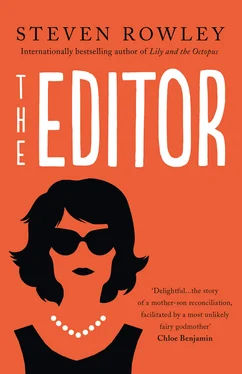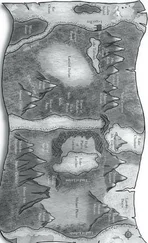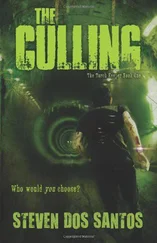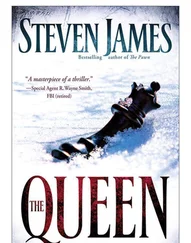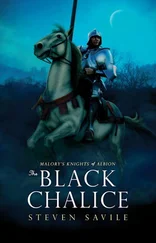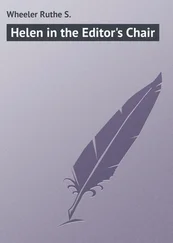Did I say any of this to Jackie? No, because I lied and said it was desperation. Although, wasn’t it? Just not desperation for a subject, desperation for something else. Reconciliation. Repatriation. Damn. Why wasn’t I better prepared for this meeting?
My agent!
Allen sent me walking into the lion’s den with no warning of the lioness. I pass a pay phone by a Sbarro pizza and empty my pockets of their contents. I fish dimes from a pool of pennies and subway tokens, then pick up the receiver, making as little contact with it as possible. How many drug dealers and prostitutes and (worse) tourists have used this phone before me today? I dial my agent’s number, which I memorized after our first meeting. The phone rings three times before his assistant picks up.
“Donna? It’s James Smale. Could you put Allen on the line?”
Donna laughs. “He said you’d be calling.”
I hate being obvious (should I ask him about former French presidents?), but there’s no way around it. “May I talk to him, please?”
“How was your meeting with Lisa?”
“It was Lila, Donna. Her name was Lila.” Actually, that wasn’t her name at all.
“I can never read my own chicken scratch. Anyhow, he’s on another line.”
“Have him hang up!” I’m shouting, but I can’t tell if it’s from excitement or from the din and chaos around me.
“What? It’s hard to understand you. Where are you? Do you want me to interrupt him?”
It occurs to me he might be on with Doubleday, that the call might be about me. “No, no!” I say, both to her and to someone who has just approached with a cigarette, harassing me for a light. “Just have him call me. I’ll be home in twenty minutes.”
I hang up the phone and turn around to see a black man dressed in drag as the Statue of Liberty approaching, torch in the air and all. “Give me your tired, your poor, your huddled masses, honey,” he says.
I smile and think of the last line of the poem, which has stuck since I learned it in Mrs. Chaddon’s sixth-grade class. “I lift my lamp beside the golden door.”
“That’s right you do, baby,” he says, before disappearing into a tour group wearing green-foam Statue of Liberty visors exiting the Sbarro.
A bus stops at the red light in front of me with the high-pitched squealing of poorly maintained brakes. I glance up at the people on board before noticing that the bus sports a tattered poster for Oliver Stone’s JFK , released in theaters this past Christmas. The poster is faded and torn, as if some drunk NYU student tried to pry it off for his dorm room wall and abandoned the theft halfway through.
I can hear my heartbeat in my ears. I just met a woman in a conference room who is also somehow everywhere, even in the image of a tattered American flag draped over Kevin Costner’s face on the side of this bus.
It’s impossible to reconcile.
Across Seventh Avenue, I spot a mother holding her child’s hand. Her eyes dart from one potential danger to another, and she places her other hand on the boy’s shoulder so as not to lose him—that single touch a time machine for me. My first ever visit to this neon circus, I think I was seven. My parents decided to drive us into the city from our sleepy upstate home so we could feel the energy, walking us all the way up Fifth Avenue from the Empire State Building to Central Park. On the way back to the car, my father charged forward, insisting that Times Square was a sight everyone should see. Kenny and Naomi were teenagers, able to withstand the bustle of the city and seemingly unfazed by it all. But my mother held me so tightly, at times I thought I might bruise.
“Keep up, Aileen. The boy’s fine,” my father bellowed. And then, “What we should really do is see the subway. A marvel of urban transportation.” Those were the things that interested my father, tunnels and bridges and trains.
But I didn’t want to go underground, like rats—I could barely breathe above; I looked desperately for patches of sky. I glanced to my mother for help, prayed she would never let go, and she leaned down and whispered in my ear the words that would one day change my life: “You know, all the great writers live in New York.” And just like that, the city transformed from menacing commotion to inviting possibility.
In eight years of living here, I’ve lost the sensation of my mother’s excited whisper and firm grip. Times Square came to mock me—symbolic of the dismissal I faced trying to make it as a writer. It was every rejection letter, every failed job interview, every face that chuckled when I revealed my dream, every horrible, soul-crushing temporary job. It led to my hating New York. Hating myself. I never felt the same energy of that day again.
Until now.
I count to ten to just “feel the energy,” giving my father at least that much, then blow into my cupped hands to warm them. Gloves! I have gloves. I find them in my coat pocket and put them on before scurrying west across Forty-Ninth Street. I have to get home to Hell’s Kitchen. I have to get home to tell Daniel and to be there when my agent calls.
I have to get home before I wake up.

FOUR Chapter Four Chapter Five Chapter Six Chapter Seven Chapter Eight Go Your Own Way: July 1992 Chapter Nine Chapter Ten Chapter Eleven Chapter Twelve Chapter Thirteen Chapter Fourteen Yesterday’s Gone, Yesterday’s Gone: November 1992 Chapter Fifteen Chapter Sixteen Chapter Seventeen Chapter Eighteen Chapter Nineteen Chapter Twenty Chapter Twenty-One Chapter Twenty-Two Everything Turned Around: December 1992/1993 Chapter Twenty-Three Chapter Twenty-Four Chapter Twenty-Five Chapter Twenty-Six Chapter Twenty-Seven Chapter Twenty-Eight Chapter Twenty-Nine Chapter Thirty Chapter Thirty-One Chapter Thirty-Two Chapter Thirty-Three What Tomorrow Will Do: May 1994 Chapter Thirty-Four Chapter Thirty-Five Chapter Thirty-Six Acknowledgments About the Author Also by Steven Rowley About the Publisher

I bound up the steps of our five-story walk-up, two at a time from floors one through three, then individually until I reach the top. On the fourth-floor landing, my messenger bag swings forward and I almost eat one of the steps that leads to our door. It’s then that I realize just how grungy our building is, the stairs thick with years of grime and grease from whatever unpleasant bits of the city people track in on their shoes. I brush myself off, but not the troubling realization that we really do live like this. It’s not at all suitable to entertain these new circles I may be traveling in. When I reach the apartment door, it’s locked. I mean, of course it’s locked. Even though this is David Dinkins’s New York, we’re not animals. Usually I have my keys in hand, but I ran up the stairs too quickly to retrieve them. I reach in my pocket and pull out a crumpled gum wrapper. Please tell me I wasn’t chewing gum during the meeting! I check my mouth. No gum. Breath not great, but no gum. This brings some small relief. I find my keys, but it takes me three attempts to open the door.
Inside, Daniel is lying on the couch.
“I was hoping that was you. I thought we were being burgled.” Daniel is the type of person who says “burgled” instead of “robbed,” and he’s not even a writer—or a lawyer. He directs theater. I stare at him, his maddeningly thick hair and dark features, unsure of what to say. Not what to say so much as how to begin to say it. Also because my heart is pounding from my sprint up the stairs and I taste something coppery and I may be having a stroke. “You’re not going to believe this.” He gestures toward our nineteen-inch television. “There’s another one.”
Читать дальше
